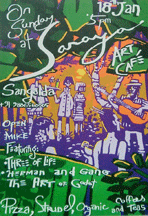Learn More at the website
The most important single work produced by the Church Fathers on any of the prophetic writings of the Old Testament, commenting upon the original Hebrew text, and showing a complete mastery of all the literature of the Church on the subjects touched upon to the time of composition, is without question St. Jerome's Commentary on the Book of Daniel. In Origen's work on Daniel (Migne Series of Latin Church Fathers, Vol. XVI, pp. 2765-2928) much of the exegesis is spoiled by the author's allegorical principles of hermeneutics, and the later commentary by Chrysostom (Vol. XVI, pp. 191-246) is more in the nature of a series of homilies than an attempt to wrestle with the problems of Daniel's prophecies. For over eleven hundred years after its publication, all who wrote on Daniel showed themselves more indebted to this work by Jerome than to any other commentary on the Old Testament Scriptures produced in the period of the Church Fathers. It is strange that though we have some sixteen thousand pages in the Ante-Nicene, Nicene, and Post-Nicene Fathers, in the three major series of translations of patristic literature issued by Scribners some years ago, the Commentary on Daniel was passed by, as it was in the earlier series of translations undertaken by leaders of the Oxford Movement in the middle of the nineteenth century. The fifth volume of the Ante-Nicene Fathers includes fragments from the commentary on Daniel by Hippolytus, written about A.D. 230 (pp. 177-199) and these fragments contain very important material, especially on the last of the seventy weeks, Antichrist, and the author's amazing identification of the toes of clay and iron of Daniel 2:43 with democracies; yet, the work is quite inferior in learning and insight to that of Jerome. (The doctoral dissertation by John P. O'Connell, "The Eschatology of St. Jerome," Mundelein, Ill., 1948, passes over almost all of the eschatological interpretations of Jerome's commentary on Daniel.)
The translation of no volume of the first six centuries of |6 the Christian Church, appearing for the first time in the twentieth century, has quite the significance, it seems to me, that has this translation by my colleague and friend, Dr. Gleason L. Archer, of Jerome's indispensable and ever-suggestive work on Daniel. Not even in the commentaries of Luther and Calvin on this portion of Scripture do we have anything as worthwhile as this volume of Jerome.
Inasmuch as the life and work of Jerome may not be too well known to many who will be studying this volume, perhaps a brief word concerning his role in the early development of Christian thought will not be out of place. Jerome was born of Christian parents in the year A.D. 347 at Strido, near Aquileia, the capital of Venetia in central Italy. He was educated in the city of Rome, and was baptized there. Before he was twenty years of age, Jerome went to Gaul to carry on research, and returned to live in Aquileia from 370 to 373. In 374 he made an extensive trip through the Near East, including a visit to Jerusalem, and then spent five years in the desert of Chalcis, where he practiced the most intense asceticism, though, says a recent writer, "perpetually haunted by reminiscences of the world and the flesh. He took, however, his classical library with him and comforted himself with Greek and Latin; till one night he dreamed that a judge before whom he was brought punished him for being a Ciceronian and not a Christian; whereupon [in his dream apparently] he vowed to devote his intellect entirely to the Scriptures, and on waking proceeded to learn Hebrew" (Ernest Leigh-Bennett: Handbook of the Early Church Fathers, London, 1920, p. 273).
Jerome's health declined seriously, and in 379 we find him in the great Christian city of Antioch where, much against his will, he was ordained a priest by Paulinus. The following year he visited Constantinople, desiring to hear Gregory of Nazianzus. From 382 to 385 he resided in Rome, and became a close friend of Pope Damasus. Having aroused the bitter opposition of many Roman citizens because of his insistence upon ascetic practices, winning to these a number of noble Roman ladies, in 386 he left for the East and took up residence in Bethlehem, where he continued to live until his death in 420. It was here that most of his writing was done. |7
Jerome is famous in the history of the Christian Church for four things: He made monastic life popular in the Latin Church, though he by no means originated monasticism, of course, and he did not found an order, such as the Benedictine or Franciscan. His letters are certainly the finest gems of autobiography produced by any Christian, at least in the first millennium of the Church. It is to Jerome that we owe the great Vulgate, completed in 404, which became the standard Bible for the Western Church, and remains such. "In that work he produced what must be numbered among the supreme achievements of the Christian mind in any age" (G. Grutzmacher, art., "Jerome," ERE, Vol. VII, p. 500). "Here he created an object lesson on monasticism at the most sacred spot in the world, and he invited the world to come and learn. And the world came, for his hostelry was continually filled with travellers from the West. In consequence there now appear a reverence for the monastic life, a reverence for sacred places, and sacred things, and a habit of pilgrimages" (Leigh-Bennett, p. 279).
The following statement on the Septuagint by a recognized contemporary authority is worth quoting: "St. Jerome was more than a channel for Greek learning. As a Hebrew scholar and humanist he brought the Bible closer to the Latin-speaking world. The Old Latin was an unliterary translation from the Septuagint; the Vulgate was based on the 'Hebrew Truth' as St. Jerome lovingly calls it. The language, 'where the rustic Latin of the first Christian centuries mingles with the Hebraising Latinity of St. Jerome,' was the beginning of a new era, when eastern poetry penetrated into the speech of the western peoples" (Beryl Smalley: The Study of the Bible in the Middle Ages, Oxford, 1941, p. 9).
Well deserved was Jerome's title of Doctor Maximus sacris Scripturis explanandis. Even during Jerome's lifetime, Sulpicius Severus allowed one of the disputants in his Dialogus, written about 405, to say, "I would be surprised if he (Jerome) were not already known to you through his writings, since he is read throughout the whole world." Although they differed on many matters, Augustine confessed to Jerome, "I have not as great a knowledge of the divine Scriptures as you have, nor could I have such knowledge as I see in you." (These two quotations are from |8 the excellent chapter, "St. Jerome as an Exegete," by Louis N. Hartmann, in A Monument to St. Jerome, edited by Francis X. Murphy, New York, 1952, p. 67.)
That he might be as accurate an interpreter of the Old Testament Scriptures as possible, Jerome mastered the Hebrew language, and the claim cannot be denied that "he surpassed all the Fathers in the mastery of Hebrew." He loved the Word of God and counted the hours and days, and years spent in its study the happiest and most profitable of his life. In the Preface to his lost revision of the Old Latin Paralipomenon, written about 389, he says, "For I must admit to you, my dearest Domnion and Rogatian, that, in regard to the divine volumes, I have never trusted in my own ability, nor have I let my opinion be my teacher. Even in those things which I thought I already knew, my custom has been to make inquiries, and I have done so all the more in those matters about which I was uncertain. Hence, when you recently wrote to me and begged me to translate the Book of Paralipomenon into Latin, I procured a former teacher of the Law from Tiberias, who was held in high esteem among the Hebrews, and I conferred with him 'from top to toe,' as they say. Only thus fortified, have I been bold enough to do what you asked of me."
In one of his famous letters to Paula (Ep. 30) Jerome expresses his profound admiration for the Holy Scriptures: "What, pray, can be more sacred than this sacred mystery (of the Scriptures)? What can be more delightful than the pleasure found therein? What food, what honey can be sweeter than to learn of God's wise plan, to enter into His sanctuary and gaze on the mind of the Creator, and to rehearse the words of your Lord, which, though derided by the wise of this world, are really full of spiritual wisdom! Let the others, if they will, have their wealth, and drink from jewelled cups, be clad in silk, and bask in popular applause, as if they could not exhaust their riches in all kinds of pleasures. Our delight shall be to meditate on the Law of the Lord day and night, to knock at His door when it is not open, to receive the bread of the Trinity, and, with our Lord going before us, to walk on the billows of the world."
The one who attempts to give to the Christian Church a dependable translation of Jerome's commentary on the Hebrew |9 text of Daniel must have a thorough mastery of Hebrew and Aramaic to understand the text from which Jerome worked, a comprehensive knowledge of the Greek language (for Jerome also made a careful study of the Septuagint) and must be able to read with unfaltering precision the Latin of that age, for it is in Latin that the work is written. That Dr. Gleason L. Archer, Professor of Biblical Languages in Fuller Theological Seminary, possesses such equipment will be acknowledged by all who give even the briefest consideration to this commentary now offered to the public. I trust that from this superb piece of Biblical scholarship many will be led to a new investigation of the whole, vast area, still not adequately explored, of the eschatological beliefs of the first five centuries of the Christian Church.
This manuscript has recently been awarded one of the most coveted prizes given for notable work in the field of theological and Biblical research, the prize for translation work offered by the Christian Research Foundation.
Wilbur M. Smith
Fuller Theological Seminary
October, 1958 |10
| < Prev | Next > |
|---|
















